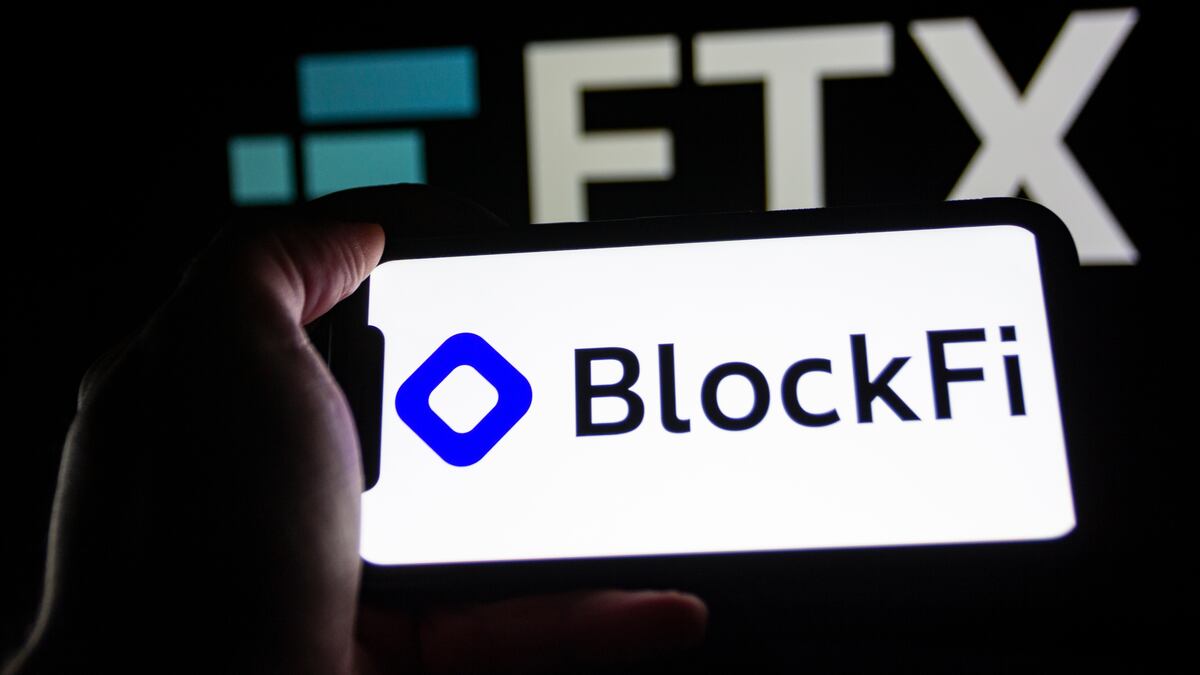During almost three hours of testimony Friday morning, Zac Prince, CEO of crypto lender BlockFi, said his company might have dodged bankruptcy had it not loaned hundreds of millions to Sam Bankman-Fried’s crypto trading fund, Alameda Research — loans BlockFi had made, in part, after reviewing Alameda’s rosy financial statements.
“It appeared strong,” Prince said of Alameda’s financial state in a courtroom overlooking lower Manhattan Friday morning. “They had assets that were greater than liabilities by many billions of dollars.”
But the money wasn’t actually there. When BlockFi asked Alameda to return crypto worth $850 million last November, Alameda sent back only $150 million. By the end of the month, BlockFi had filed for bankruptcy.
Prince’s testimony was the latest addition to an argument federal prosecutors have built over seven days of testimony: that 31-year-old Bankman-Fried, the CEO and co-founder of crypto exchange FTX, was the ringleader of a multibillion-dollar fraud and deserves to spend decades in prison.
Bankman-Fried has pleaded not guilty to all charges against him, including conspiracy, fraud, and money laundering.
Alameda CEO Caroline Ellison, along with FTX executives Gary Wang and Nishad Singh, have pleaded guilty and are cooperating with prosecutors.
Earlier this week, Ellison said she defrauded lenders at Bankman-Fried’s request by misstating Alameda’s assets and liabilities in financial documents. Meanwhile, Alameda made investments and repaid lenders with FTX customers’ deposits, she said.
Alameda increases its borrowing
As he was questioned by prosecutors Friday, Prince explained BlockFi’s operations as a crypto lender and its business history with Alameda and FTX.
BlockFi lent crypto to retail and institutional investors. In 2022, the company had between 100 and 200 employees vetting would-be borrowers, ensuring they were loan-worthy, Prince said.
Although it wasn’t an exchange, BlockFi also offered its customers a trading product. After a customer placed a trade on BlockFi’s platform, BlockFi would execute the trade on their behalf on FTX, Prince said. For that reason, around $350 million in BlockFi customer assets were held on FTX when the latter declared for bankruptcy last year.
In late 2020 or early 2021, BlockFi began lending to Alameda, according to Prince. In May 2021, it had loaned Alameda about $50 million in crypto; a year later, that number had ballooned to about $1 billion.
As Alameda asked to borrow more and more, BlockFi considered several things, Prince said. Those included Alameda’s perfect record of repaying BlockFi’s loans, as well as the amount of collateral Alameda would use to secure new loans. That collateral came in the form of several crypto tokens, most prominently FTX’s own FTT token, and was always worth more than the loan itself.
But the hedge fund’s unaudited financial statements were the most important thing BlockFi looked at, according to Prince.
“This was the primary thing we were relying on,” Prince said, “to understand the financial health of Alameda.”
According to those statements, Alameda had far more assets than liabilities — so much so, in fact, that the company would have been solvent even if its FTT became worthless, Prince said.
Had those financial statements shown that Alameda actually had many more billions of dollars in loans on its books, BlockFi would not have loaned the crypto, Prince said.
The cross-exam
During cross-examination Friday, Bankman-Fried’s attorney Mark Cohen suggested BlockFi knew the risk it was taking.
At one point, Cohen presented a BlockFi memo in which members of the company’s risk team recommended management decline Alameda’s request for 10,000 Bitcoin, worth more than $470 million at the time.
The loan would have given BlockFi too much exposure to FTT, a volatile token, according to the memo.
Cohen asked Prince whether BlockFi went ahead and approved the loan anyway.
“No, this loan did not get made,” Prince said.
Undaunted, Cohen pressed the executive, asking him whether BlockFi approved any future loans to Alameda. Prince said BlockFi did indeed approve loans after the 10,000 Bitcoin loan was declined, but under different terms that were more favourable to the lender.
Cohen tried again, asking Prince a second time whether BlockFi had approved the loan discussed in the memo.
“No, I already told you what happened here,” Prince said, clearly agitated. “We did not make this loan.”
Moments later, the defence ended its cross-examination.
Aleks Gilbert is DL News’ New York-based DeFi Correspondent. Got any tips on the SBF trial? Reach out to him at aleks@dlnews.com.
